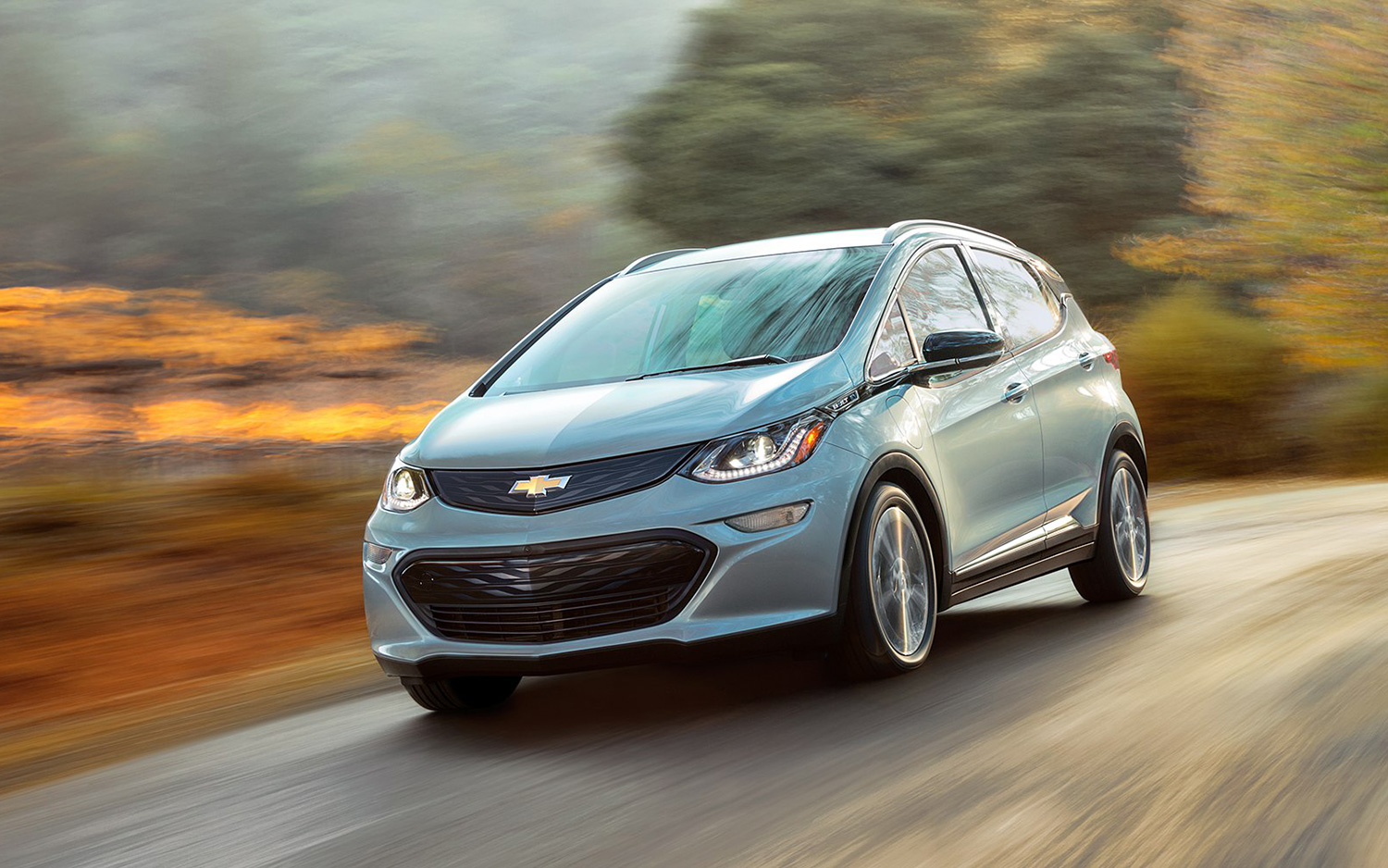All Chevy Bolts being recalled due to fire risk — and that’s bad for the entire EV industry
The Chevy Bolt recall could scare off a lot of EV shoppers

Here at Tom’s Guide our expert editors are committed to bringing you the best news, reviews and guides to help you stay informed and ahead of the curve!
You are now subscribed
Your newsletter sign-up was successful
Want to add more newsletters?

Daily (Mon-Sun)
Tom's Guide Daily
Sign up to get the latest updates on all of your favorite content! From cutting-edge tech news and the hottest streaming buzz to unbeatable deals on the best products and in-depth reviews, we’ve got you covered.

Weekly on Thursday
Tom's AI Guide
Be AI savvy with your weekly newsletter summing up all the biggest AI news you need to know. Plus, analysis from our AI editor and tips on how to use the latest AI tools!

Weekly on Friday
Tom's iGuide
Unlock the vast world of Apple news straight to your inbox. With coverage on everything from exciting product launches to essential software updates, this is your go-to source for the latest updates on all the best Apple content.

Weekly on Monday
Tom's Streaming Guide
Our weekly newsletter is expertly crafted to immerse you in the world of streaming. Stay updated on the latest releases and our top recommendations across your favorite streaming platforms.
Join the club
Get full access to premium articles, exclusive features and a growing list of member rewards.
If you’ve been paying attention to the EV industry, you’ll know that Chevrolet has just issued a recall of the Bolt EV. It’s the third Bolt recall that’s taken place over the past several months, and they’re all related to a string of battery fires.
The big thing is that this recall is far more encompassing than the last two. The earlier events focussed on a handful of Bolt models, but this time Chevrolet has issued a recall of every single Bolt and Bolt EUV. And that's arguably the absolute worst thing to happen to the electric car industry right now.
- The best electric cars you can buy
- Everything you need to know about the GMC Hummer EV
- Plus: 2022 Chevy Bolt EUV review: Top tech in a compact EV
The Bolt EV recall website explicitly states that the recall is down to the use of defective lithium-ion battery models. So Chevrolet and parent company General Motors will be replacing them, and will inform customers when they can take their car in for repair.
In the meantime, Chevrolet is asking users to be a lot more careful with charging. Like the second recall from last month, Bolt owners are being warned to park their cars outside after charging, and not to leave them charging indoors overnight. Likewise they’re being told not to charge over 90 percent using Hilltop Reserve Mode (2017-1028 models) or Target Charge Level (2019-2022).
The final advice is that Bolt owners should be charging their cars more frequently, and avoid depleting the battery to under 70 miles of range where possible.
Battery issues are one thing, fires are another
It’s not a very good look for a car company's road to electrification, especially one as high profile as Chevrolet, to have to give out such strict instructions on how drivers should or should not charge their cars. The whole situation is a perfect storm of problems, which has the potential to seriously affect people's confidence in EVs.
After all, despite all the progress that’s been made over the past decade, electric cars are still the outlier. Sales may be rising, and they’re gaining popularity all the time, but battery issues serious enough to demand such caution are only going to shake people’s confidence in the future of EVs.
Get instant access to breaking news, the hottest reviews, great deals and helpful tips.
Sure, gasoline is very volatile and flammable as well, but you don’t hear about those vehicles spontaneously bursting into flames. And, at the very least, a gasoline fire is much simpler to put out than a lithium-ion battery fire. That said, firefighters aren’t unequipped to handle EV battery fires, as we learned after the fatal Tesla crash near Houston, Texas earlier this year.
Still, reports pointed to a multi-hour fire and thousands of gallons of water being needed to extinguish the fire for good. Couple stories like that with reports of wide-scale battery faults, and it could be enough to make anyone on the fence think twice about picking up an electric car.
In a worst case scenario, it gives anti-EV hardliners even more material to attack electric cars, and the ongoing electrification of the auto industry, by whipping up a frenzy of fear and EV skepticism. More so if any Bolt batteries do catch fire and cause fatalities.
It’s not all bad news
Thankfully we’ve had several years of proof that electric cars can work, and that using enormous lithium-ion batteries to drive around is pretty safe. The fact is that this recall seems to be Chevrolet exercising an abundance of caution based on what it claims is battery supplier LG’s fault.
Apparently, the faulty batteries were initially thought to be restricted to a single LG Chem factory in Ochange, South Korea. But a fire involving a 2019 Bolt, which was not included in previous recalls, has led to the company expanding its investigation. It turned out similar problems were also present in batteries made at other LG plants.
Without knowing exactly which Bolt models are affected, it seems as though Chevrolet had no choice but to recall them all just in case. Which is a very reasonable decision to make, seeing as how the longer the issue goes on the worse the situation becomes. Recalling every Bolt is not a good look for Chevrolet and GM, but it’s the best option available right now.
Even the $2 billion cost of recalling the Bolts is peanuts compared to the negative publicity that would occur if Chevrolet was willing to turn a blind eye and let the problem continue. Particularly since ensuring every single Bolt battery is safe also means there’s a far lower chance that someone could be maimed or killed in fire caused by a faulty battery. That would make a bad situation incalculably worse.
“We’re working with our supplier and manufacturing teams to determine how to best expedite battery capacity for module replacement under the recall,” GM spokesman Dan Flores wrote to CNBC following the recall in July. “These teams are working around the clock on this issue.”
So don’t let this situation put you off buying an electric car for yourself. You probably don’t want to go out and buy a Bolt, or Bolt EUV anytime soon, but there’s no shortage of safe electric options out there for you to choose from.

Tom is the Tom's Guide's UK Phones Editor, tackling the latest smartphone news and vocally expressing his opinions about upcoming features or changes. It's long way from his days as editor of Gizmodo UK, when pretty much everything was on the table. He’s usually found trying to squeeze another giant Lego set onto the shelf, draining very large cups of coffee, or complaining about how terrible his Smart TV is.
 Club Benefits
Club Benefits










